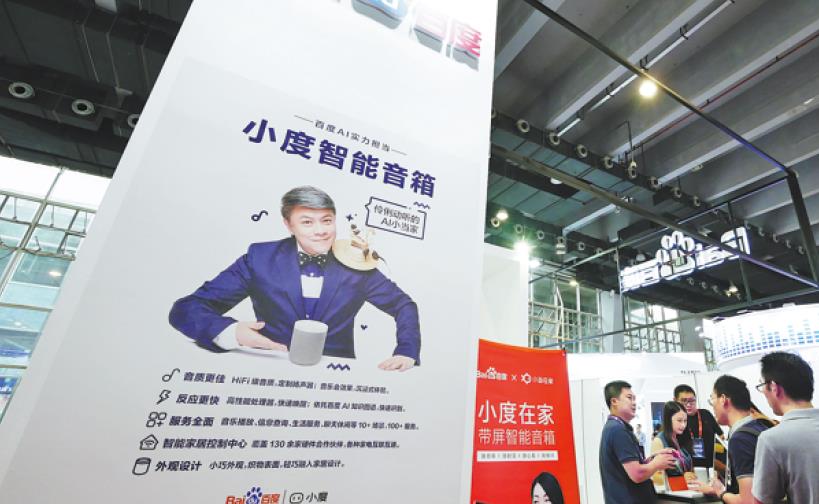Voice-activated speakers gain traction with tech-savvy Chinese shoppers
By Fan Feifei | China Daily | Updated: 2019-10-31 10:23

Zhang Xiao, 30, a white collar worker in Beijing, goes home after a day's work, sits on the sofa and asks Xiaodu - Baidu's smart speaker - to play something by pop star Jay Chou.
Xiaodu, a product launched in June 2018, hears her command, switches itself on and begins to play Zhang's favorite music.
When she asks what the weather will be like in Beijing tomorrow, the voice-based digital assistant says the temperature will be 20 C and that she will need to wear a coat.
Owing to the rapid growth of voice recognition and language comprehension technologies, smart speakers are gaining traction among tech-savvy consumers such as Zhang in China, which has outpaced the United States to become the world's largest market for smart speakers.
According to market consultancy All View Cloud, or AVC, the sales of smart speakers reached 15.56 million units nationwide in the first half of this year, surging 233 percent compared with the same period last year, and related sales revenue totaled 3.01 billion yuan ($426 million), an increase of 149 percent year-on-year.
Statistics from consultancy Canalys showed the global smart speaker market grew 55.4 percent in the second quarter of 2019 to reach 26.1 million units. Baidu became the world's second-largest smart speaker vendor as the tech giant shipped 4.5 million speakers worldwide in the second quarter, accounting for 17.3 percent market share.
Google Inc sold 4.3 million speakers, giving it 16.7 percent of the market, while Amazon maintained the worldwide lead by shipping 6.6 million units of Echo smart speakers, 25.4 percent of the market.
Moreover, Baidu's smart speaker sales spiked 3,700 percent compared with the same period last year, while Alibaba and Xiaomi, which ranked fourth and fifth, saw growth of 38.8 percent and 37.5 percent respectively.
The consultancy said China's smart speaker market performance outshone others as the country doubled its quarterly shipment size to 12.6 million units, more than twice that of the US market, which stands at 6.1 million units.
"The lightning fast development in China is largely driven by vendors pouring in large amount of capital to achieve dominant share quickly. This strategy is favored by internet service providers such as Baidu, Alibaba and Tencent, who are used to spending billions of yuan on traffic acquisition and knowhow to reach critical installed base fast," said Nicole Peng, vice-president of mobility at Canalys.
It was in March 2018 that Chinese search engine giant Baidu unveiled its smart video speaker named Xiaodu Zaijia, which features a built-in touch screen, powered by DuerOS, its conversational artificial intelligence technology similar to Amazon's digital assistant Alexa.
According to Baidu, customers will be able to watch videos, look at photos, make video calls and search the internet, using either their voice or hands. Moreover, they can order meals, groceries and medicines with voice commands.
"We are seeing voice input gaining huge adoption in China. By leveraging Baidu's AI technology, which has the largest indexing of Chinese webpages and a better multimodal semantic understanding of the Chinese language, DuerOS is positioned for the shift to conversational AI in China," said Jing Kun, general manager of Baidu's smart living group.
Alibaba has also launched its Tmall Genie CC, which has a seven-inch, built-in touch screen offering video content from popular Chinese streaming platforms, such as Youku, Bilibili and Mango TV, and also functions as a landline for users to make and receive phone and video calls via voice control.
David Watkins, director at Strategy Analytics, a global market consultancy, said the sales of smart speakers increased in all regions in the second quarter of this year, both year-on-year and quarter-on-quarter, and Asia-Pacific remained the largest region.
"The continued surge in demand for smart speakers in China has led us to marginally increase our full year (2019) global forecast to 148.8 million units and we now expect the global installed base of smart speakers to exceed 260 million units by the end of the year," Watkins said.
























